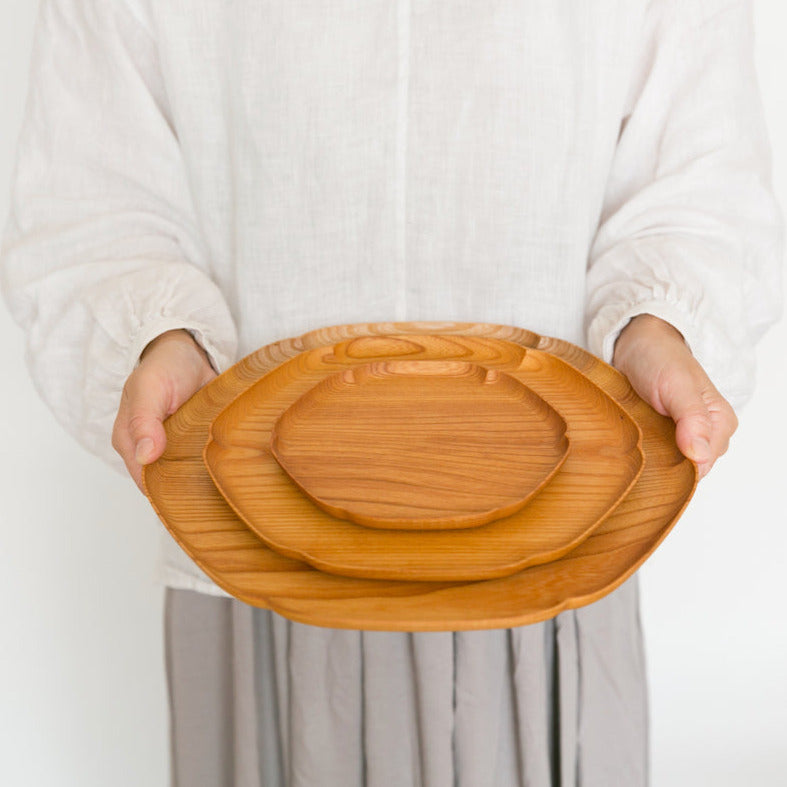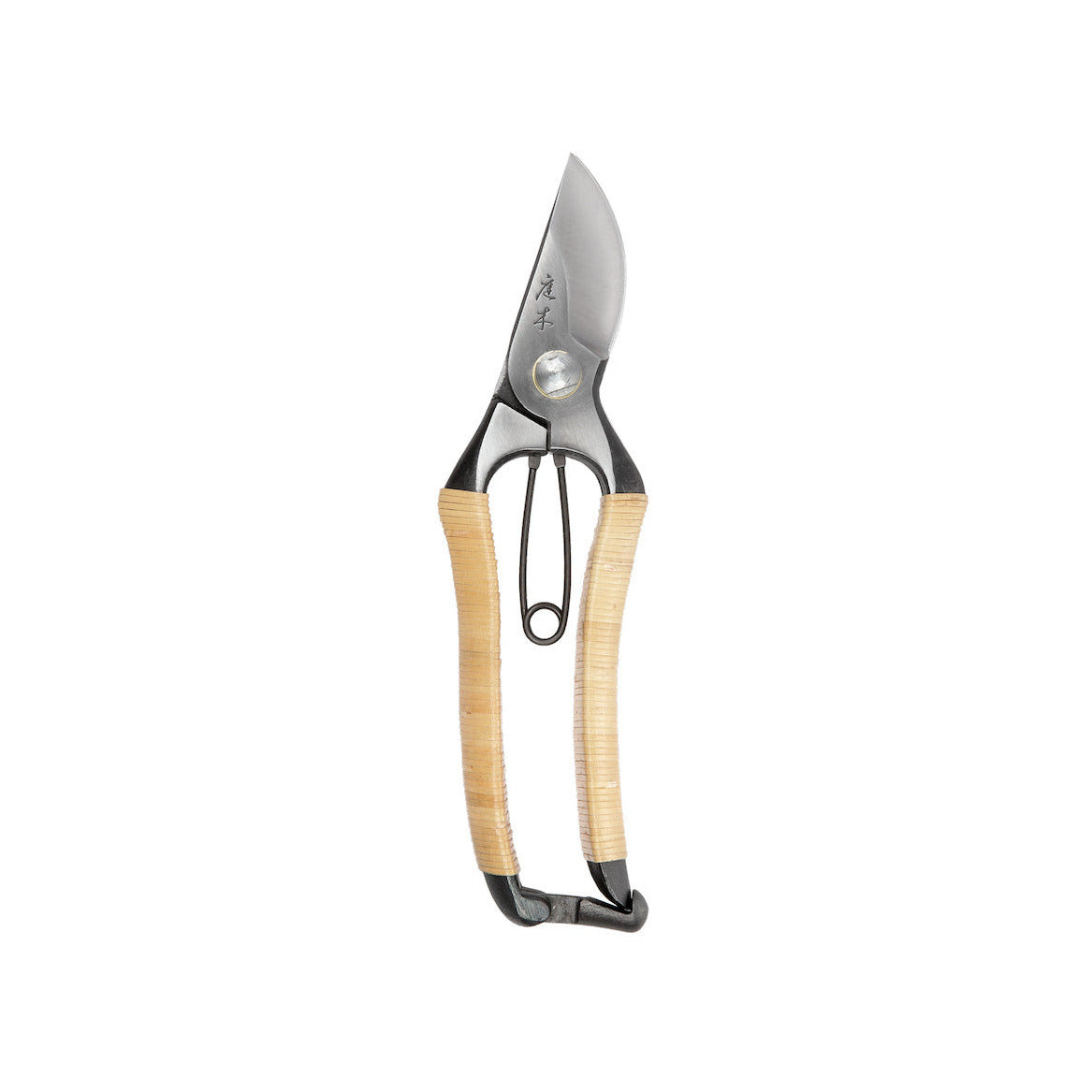
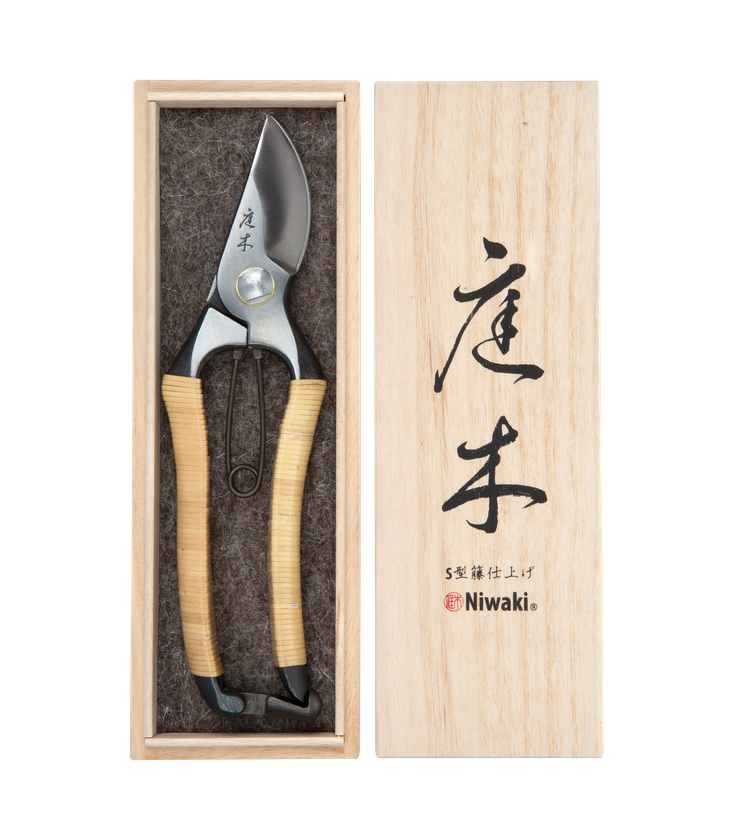
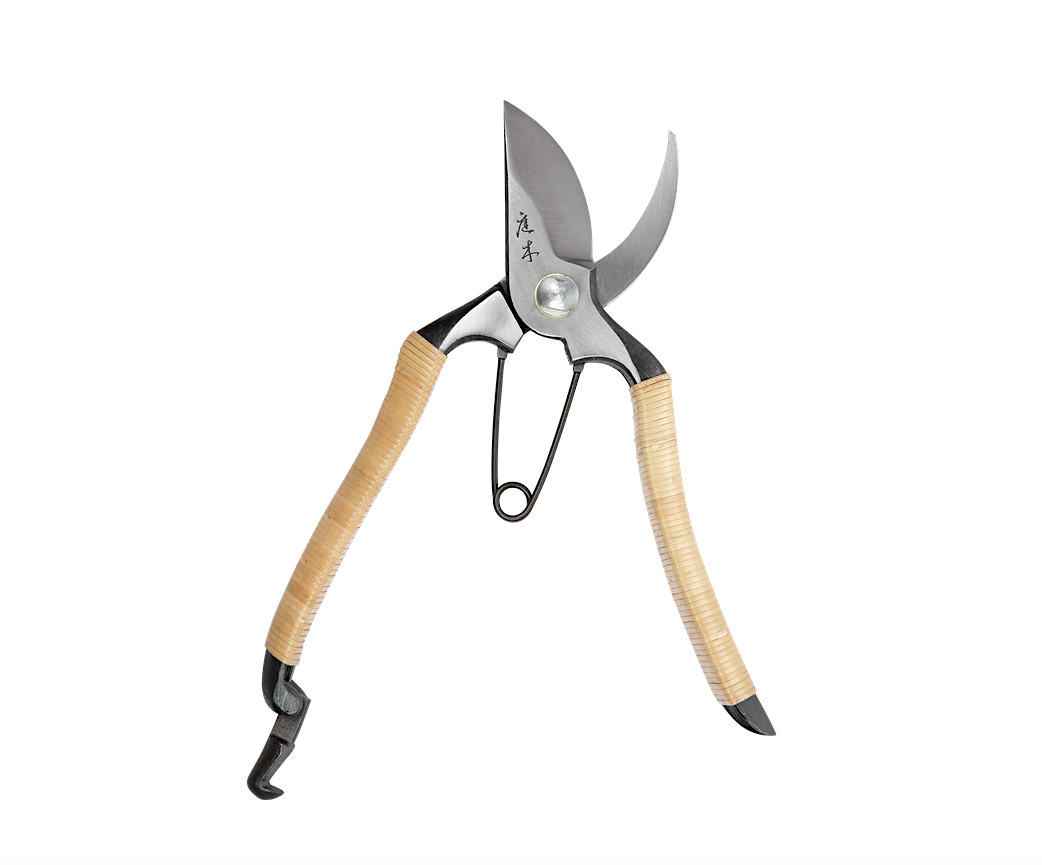
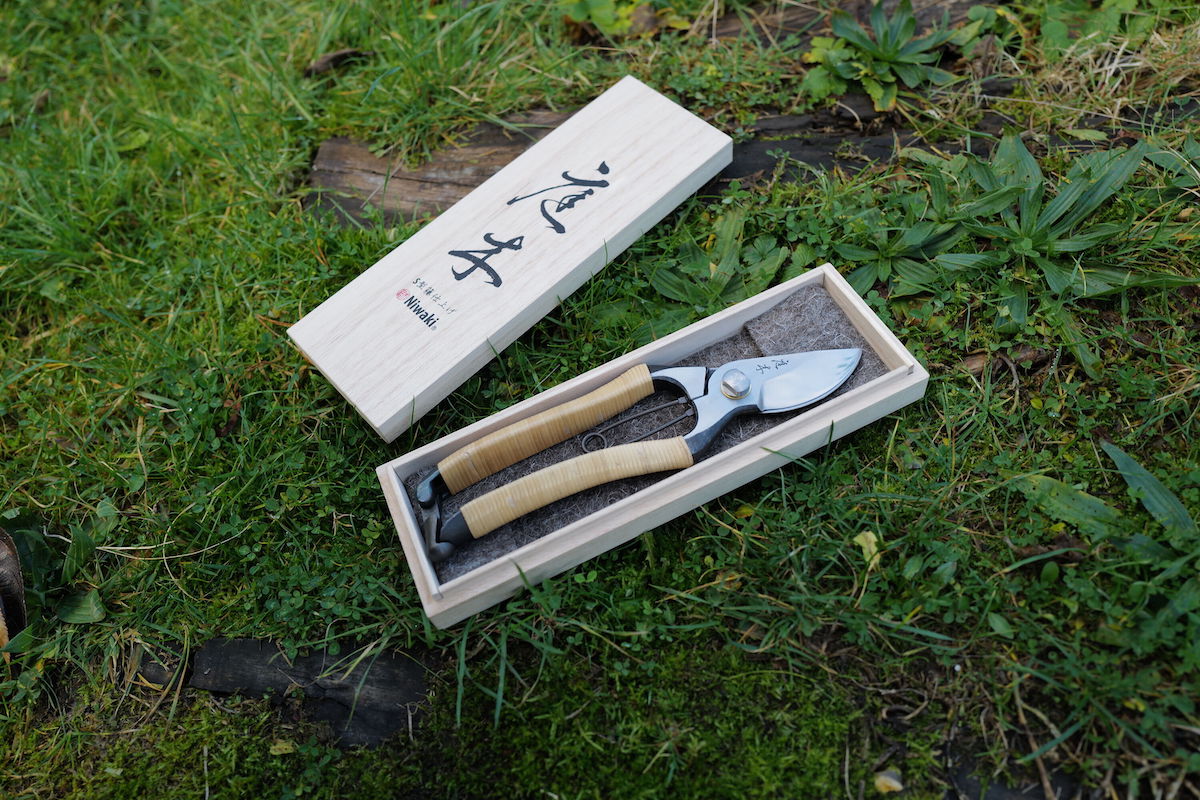
Japanese pruning shears S-type | Carbon steel | Rattan handle | Limited edition
- Material scissors: S58C carbon steel / carbon steel
- Material handle: Wisteria rattan
- Garden shears
- Dimension: 190 x 42 x 15mm
- Blade length: 50mm
- Spring mechanism
- Safety lock
- Maximum cut Ø15mm
- Includes replacement spring
- Clean regularly with Crean Mate and Camellia Oil
- Weight: 232g
- Wooden box
- Design and manufacture: Yamakawa
- Handmade in Yamagata, Japan
 Sofort lieferbar
Sofort lieferbar
Bereits in 2-3 Werktagen bei dir.
Kostenfreier Versand ab CHF 100,-
Choose options




Beschreibung
These limited edition secateurs are special in many ways. The shears are forged from S58C carbon steel, a high-quality, hard-wearing steel that retains its sharpness well and is easy to sharpen. The design is a combination of the two traditional Japanese scissor shapes, the A and B type, and offers perfect ergonomics in terms of grip and balance for long use. The handles are wrapped in Wisteria rattan, which not only looks fantastic but also provides a natural, textured grip that feels good in the hand.
Each pair of scissors comes in a box made of paulownia wood from the kiribaco tree.
Care and use instructions:
Because it is a natural material, rattan should be handled a little more carefully than ordinary garden shears. Please do not leave them out in the rain overnight (not a good idea, by the way, for all tools...) and generally take care of them. In particular, the lock of the secateurs should not be folded into the handle or used with the handle half pulled out, as this can wear and damage the rattan.
Most Niwaki tools are made of carbon steel - this means that with regular use they will stain (and eventually rust) and gradually lose their sharpness. Caring for them involves three things.
1. proper use:
- Japanese steel is hard and sharp and can be more brittle than some people are used to - it will break if overused .
- Do not cut wire, metal, stone, plastic or any other hard material (even bamboo fibres and some very hard woods, especially knots and burrs, can damage steel edges) .
- Do not twist or apply uneven pressure .
- Cut diagonally across the branches (not straight) so that you cut along the fibres .
- Watch the maximum cutting dimensions and don't overdo it (shears are not loppers)
- Use the base of the blades, not the tips, for heavier cuts .
2. Keep clean:
- Remove leaf resin, rust and dirt with a Crean Mate and water .
- Dry, wipe with Camellia Oil and store in a dry place .
3. Keep them sharp:
Even new tools need sharpening after a while. For best results, use a 1000 grit whetstone for general sharpening
New tools also need sharpening after a certain time. The best results are achieved with a grindstone with 1000 grit, for general sharpening.
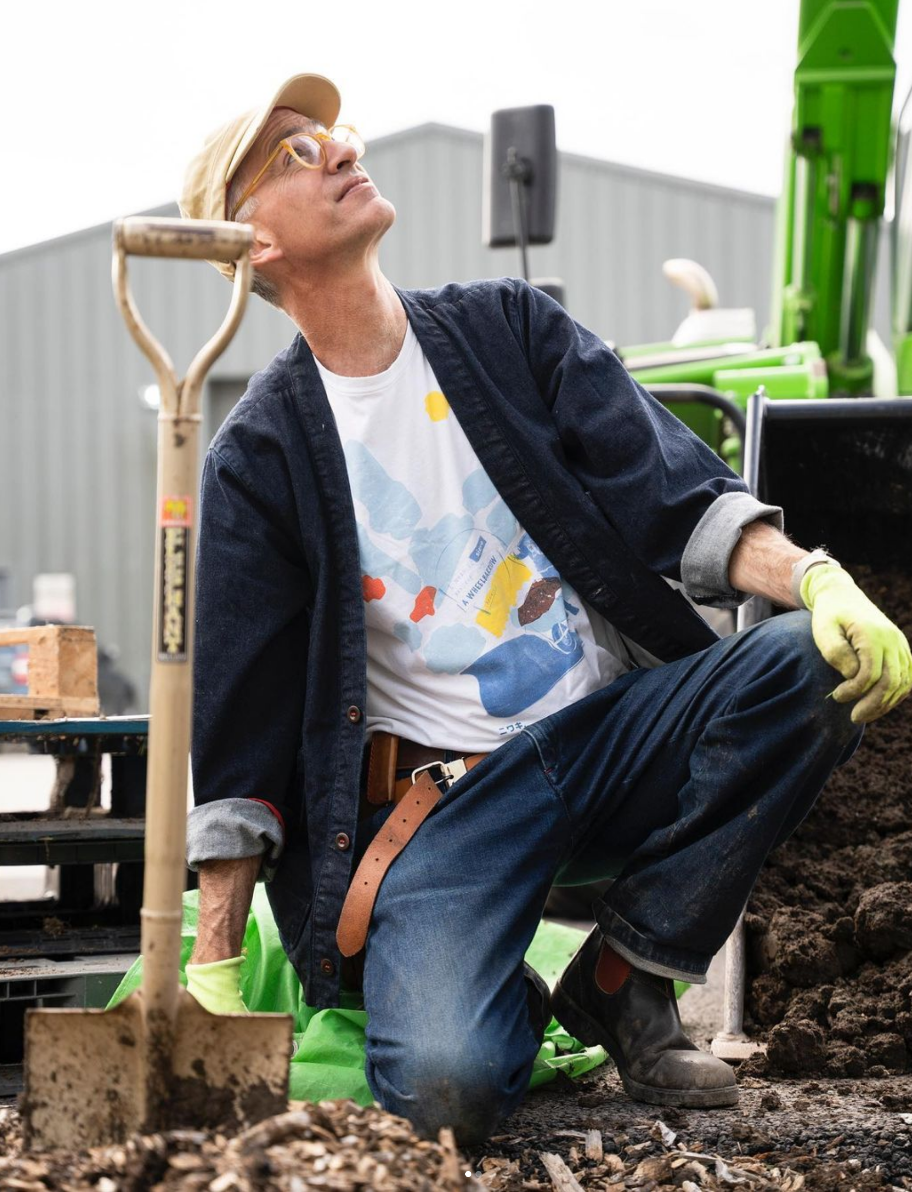
Die Story zu NIWAKI
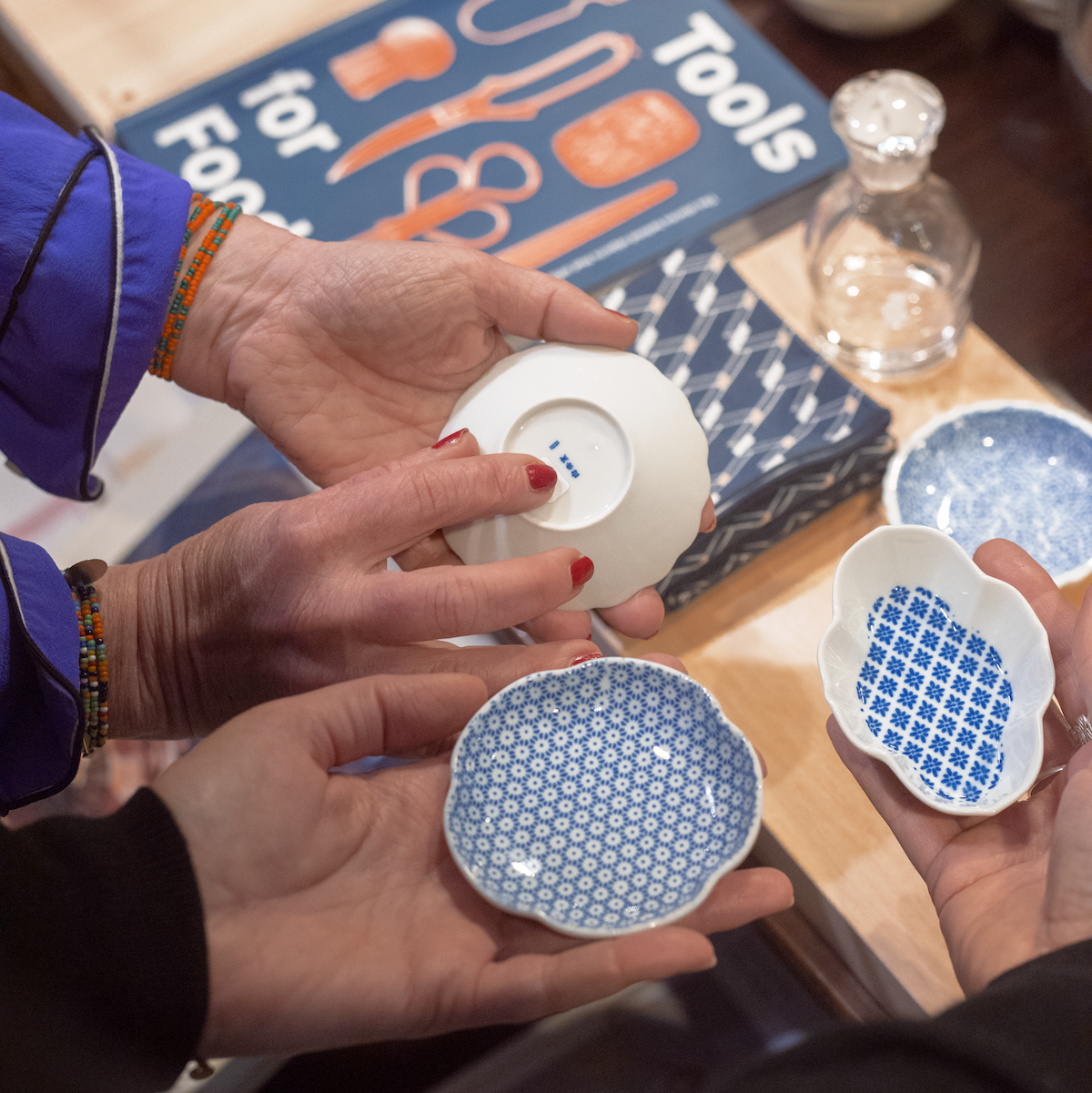
Wollt ihr wissen wer hinter ASANDRI steht
«Wir glauben, dass die Kombination von grossartigem Design und handwerklichen Können wichtig ist. Deshalb unterstützen wir Handwerker weltweit, um ihre Fähigkeiten und Handwerksbetriebe für viele weitere Generationenzu erhalten.»
Kontaktiere uns: info@asandri.com
